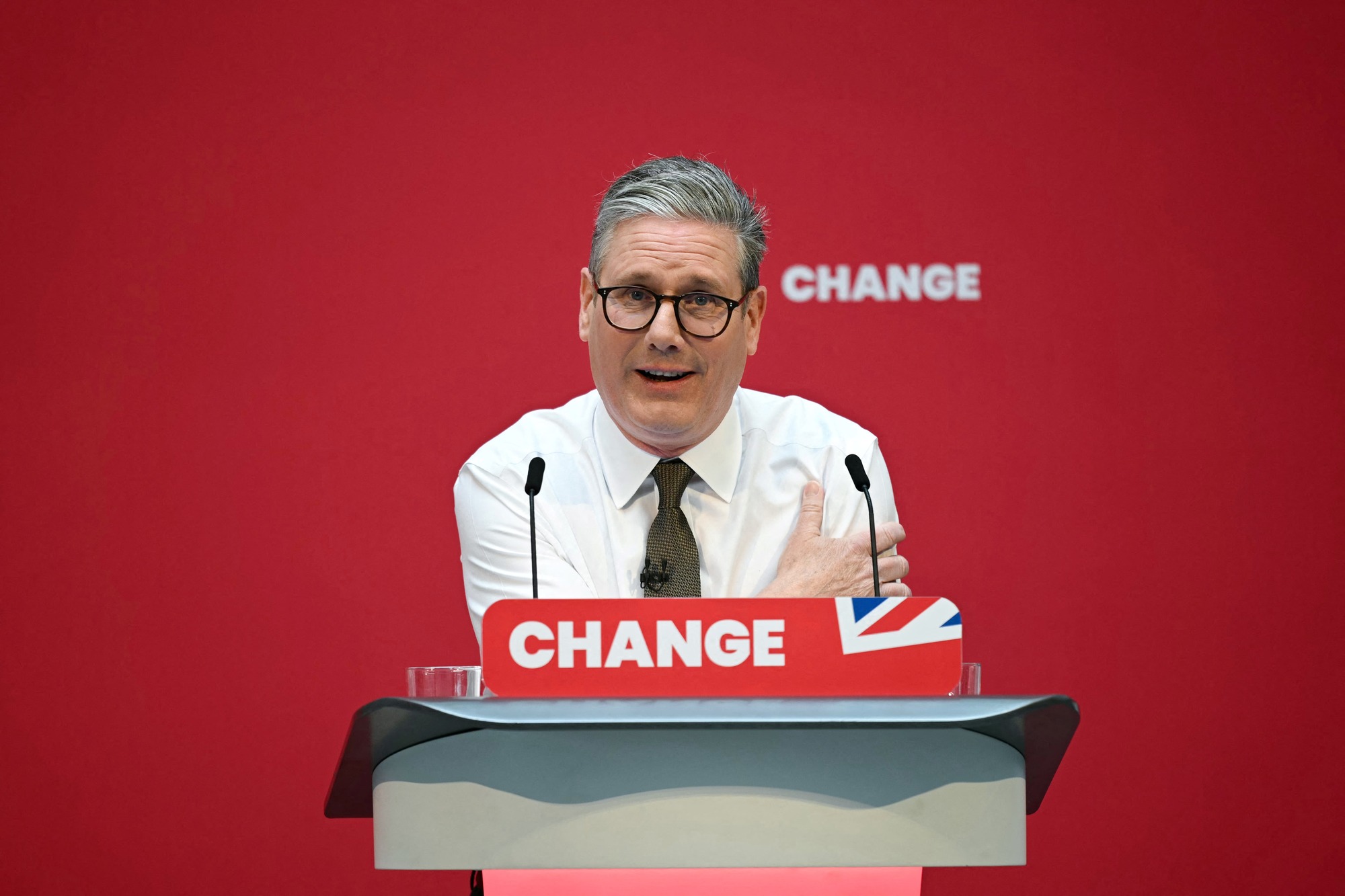If Labour wins the election on 4 July as expected, it will be just the fifth time since WWII in which power has transferred from the Conservatives to Labour. As such, there has been heavy focus on the party’s manifesto this week, which has been described as a centrist, “business-friendly” document.
There is a belief in some circles that a “Left-wing” manifesto is a vote-loser. This was the mantra of Labour “modernisers” in the 1980s and 1990s, pointing to the electorally unsuccessful 1983 Labour manifesto as “the longest suicide note in history”. The 2019 Labour manifesto has now become the manifesto bogeyman, as evidenced by Starmer’s own comment about the Tories producing a “Jeremy Corbyn-style” manifesto this week.
Yet, we should pause for a moment and consider whether Labour’s Left-wing manifestos have always been vote-losers. In my book with Mark Garnett and Gavin Hyman Keeping the Red Flag Flying, we draw on work from the Manifesto Project and other scholars to categorise Labour’s post-war manifestos in their ideological proximity to the 2017 Labour manifesto. Looking at the four elections in which power passed from the Conservatives to Labour, we find that two manifestos were ideologically similar to 2017: 1945 and 1964. The successful February 1974 manifesto was ideologically to its Left. In contrast, only the 1997 manifesto was to its Right.
By most accounts, the 2024 manifesto will sit on the Right of this ideological ledger. It is cautious, much more in the style of the 1997 document than the 1945, 1964, or 1974 winning manifestos. The fact that Labour might win on such a manifesto is not in itself evidence that only a “Right-wing” Labour programme is electorally viable.
Indeed, the record sheet for moderate manifestos is not stunning. In 1992, Labour MP Bryan Gould deplored his party’s “safety first” manifesto. Labour (wrongly) felt it could just tread water while the Tory ship sank under its own weight. Instead, Gould believed Labour needed to seek “a more positive and radical agenda” to win. Similarly, after Labour’s defeat in 2015, Labour MP Jon Cruddas condemned Ed Miliband’s “minimalist, safety-first offer”, which was also derided by the American political strategist David Axelrod as amounting to little more than “Vote Labour and win a microwave”.
In contrast, the Left-wing, election-winning manifestos of February and October 1974 assumed a kind of totemic status within the Labour Party and the wider movement. They became a measuring rod against which the Labour government was judged, not just by the public but also by its own ministers. Indeed, they sometimes became a rod by which Left-wing MPs would beat Labour ministers.
Will the 2024 Labour manifesto carry the symbolic and moral authority that the radical manifestos of 1974 did? These both seem doubtful. Indeed, a Labour landslide next month will be cited as proof, however spurious, that only a watered-down, safety-first manifesto will bring Labour to victory. This is only true if one’s political memory can only stretch as far back as 1997. For the latest crop of Labour MPs, this might be true, but if so, it’s a depressing prospect indeed.











Join the discussion
Join like minded readers that support our journalism by becoming a paid subscriber
To join the discussion in the comments, become a paid subscriber.
Join like minded readers that support our journalism, read unlimited articles and enjoy other subscriber-only benefits.
Subscribe